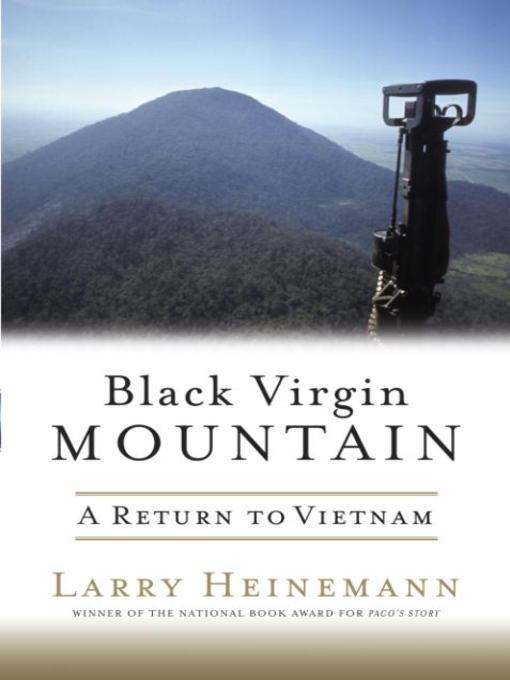
Black Virgin Mountain
A Return to Vietnam
- اطلاعات
- نقد و بررسی
- دیدگاه کاربران
نقد و بررسی

January 24, 2005
This may be the only book written by an American veteran that harshly condemns Gen. William Westmoreland and sings the praises of Vietnamese Gen. Vo Nguyen Giap. Heinemann's autobiographical Close Quarters
(1977) is one of the most underappreciated in-country Vietnam War novels; Paco's Story
(1987), a biting tale of the war's brutal emotional aftermath, won the National Book Award for fiction. Part memoir, part travelogue, part personal political treatise, Heinemann's first nonfiction effort is also a winner. His evocative look at his eventful 1967–1968 tour with a 25th Infantry Division mechanized infantry battalion contains a bitterly strong indictment of the politicians and generals who waged the war, and tracks his transformation from a nonpolitical son of the working class into a disillusioned young soldier who became virulently politicized. That narrative is framed by a trip Heinemann took to Vietnam in 1992 with fellow American Vietnam veteran writers as guests of the Vietnam Writers Association. What he found on that and subsequent visits jibes with nearly all of the other "going back" books by American veterans: a warm welcome from a nation at peace. The book's title refers to an epiphanic climb in 1992 to the top of Black Virgin (Nui Ba Den) Mountain—a talisman of sorts to many Americans who served in Tay Ninh Province during the war: "I'm home, I say to myself; I have arrived home; this
place is home."

December 1, 2004
The author of Paco's Story recalls his 1992 visit to Hanoi and environs as guest of the Vietnam Writers Association.
Copyright 2004 Library Journal, LLC Used with permission.

January 1, 2005
Heinemann, a Vietnam vet, is the author of " Paco's Story "1987), the National Book Award-winning novel about a returning vet. His latest work, a memoir, describes his return visit to Vietnam, hosted by the Vietnam Writers' Association in 1992. In some ways, it's old news: the bickering, a la Norman Mailer, with other writers; the jazzed-up prose reminiscent of Michael Herr's " Dispatches; "and the generalized, almost ritual anger. More usefully, Heinemann might have waxed acidic on what lessons from Vietnam the U.S. has brought forward, or forgotten, in Iraq. In any case, once he calms down, Heinemann proves to be an observant, even amusing, essayist. For instance, there is his delightful sojourn in Hanoi, where he explains the economy, meets with General Giap, and tries to eat dog. Having thus engaged the reader, Heinemann explores Vietnam right down its middle on an ancient, French-built train, which chugs slowly toward the author's old area of operation, Tay Ninh. Hulking in the distance, as it was in the 1960s, is the topographical oddity of Black Virgin Mountain--a Buddhist holy place that becomes holy for Heinemann, too, and brings some peace to his middle-aged soul. This pilgrimage makes for some fine, perceptive writing. It's travel writing, really, but with the depth of a Jan Morris or Paul Theroux. Read Heinemann's memoir along with the Lonely Planet" Vietnam "guide, and plan a trip to one of the few places, irony of ironies, where the locals like Americans.(Reprinted with permission of Booklist, copyright 2005, American Library Association.)




دیدگاه کاربران